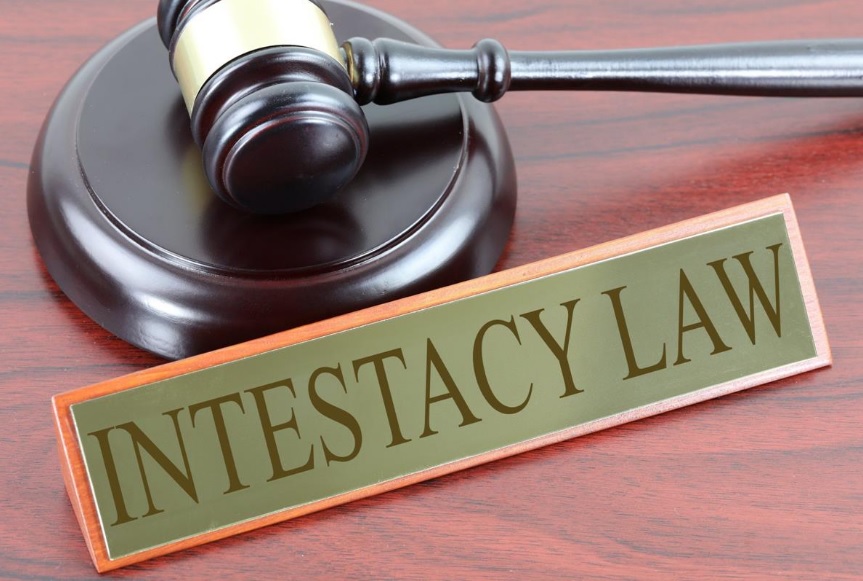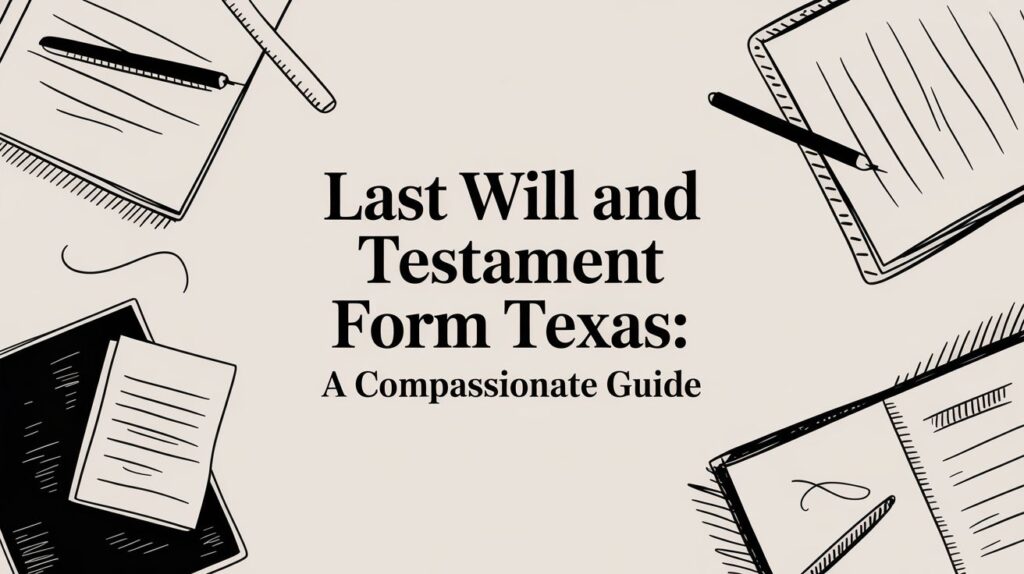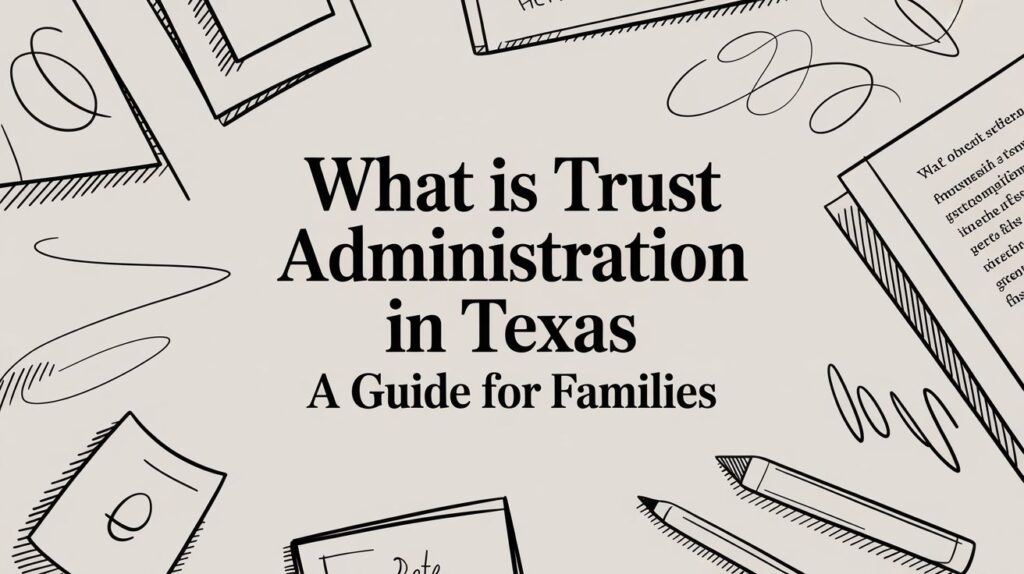When someone passes away without a will, the question of “who gets what” can quickly turn into a complicated legal process. This is where probate court intestacy laws come into play. While it might seem like a legal black hole, the truth is that intestacy laws follow a very structured system. But that doesn’t mean the outcomes are always fair—or simple.
In this comprehensive guide, we’ll break down understanding probate court intestacy laws explained in plain, relatable language. Through storytelling, real-world examples, and easy-to-digest insights, we’ll walk you through the essentials: what intestacy is, how probate court handles it, who gets priority, and why planning ahead can save your family from a legal headache.

What Is Intestacy in Probate Court?
Dying Without a Will
Intestacy refers to the situation when a person dies without a valid will in place. In such cases, the probate court steps in to distribute the deceased person’s estate based on the state’s intestate succession laws.
Every state has its own version of intestacy statutes, but they all share the same purpose: to decide who inherits your property when you didn’t say so yourself. That might sound straightforward, but it can become incredibly messy depending on family dynamics and the size of the estate.
So, understanding probate court intestacy laws explained isn’t just about legal theory—it’s about how a court will handle your life’s work when you’re no longer around to control it.
Why Probate Is Required in Intestacy Cases
The Court’s Role in Managing the Estate
Probate court serves a critical function when there’s no will: it provides a legal framework for:
- Identifying heirs
- Paying off debts and taxes
- Distributing assets according tointestate succession rules
Because there’s no written will to guide the process, probate court intestacy laws fill in the blanks. The court must ensure all interested parties are notified, that any claims against the estate are addressed, and that the remaining property is passed on lawfully.
Think of the court as the referee in a game with no playbook. Everyone’s arguing over what the deceased “would have wanted,” but the only thing that matters is what state law says.
Real-Life Example: Anna’s Missing Will
Anna, a retired nurse from Dallas, died suddenly without a will. She had one adult son, a longtime partner (whom she never married), and several nieces and nephews. She had verbally told her partner he would inherit the house, but no documents were ever signed.
When the estate entered probate, Texas intestacy laws took over. Because Anna wasn’t married, her son received the entire estate—even though she lived with her partner for 18 years. The partner received nothing.
This is a textbook case of how understanding probate court intestacy laws explained the hard way can change lives. The court didn’t care about spoken wishes—it followed the letter of the law.
The Intestate Succession Order: Who Inherits What?
Priority Under Intestacy Laws
The heart of probate court intestacy laws is the order of succession—the legal ranking of who inherits when there’s no will.
Generally, it looks something like this:
- Spouse
- Children
- Parents
- Siblings
- Nieces and nephews
- Extended family (cousins, grandparents, etc.)
If there are no living relatives, the estate may go to the state itself—a process called escheat. This is rare, but it does happen.
:max_bytes(150000):strip_icc()/GettyImages-810803280-c52c231b44cf41e5841a92ac0cbc8be9.jpg)
Each state tweaks this structure slightly. Some prioritize children over spouses or split assets in specific proportions. That’s why understanding the local rules is essential when navigating probate court intestacy laws.
What Happens to Minor Children and Guardianship?
The Court Doesn’t Just Distribute Assets
Another key factor in probate court intestacy laws is what happens to minor children left behind. If no guardian is legally named in a will, the court must appoint one.
Even if surviving family members agree on who should step in, the court will still hold a guardianship hearing. The goal is to ensure the child’s best interest—not just go with family preference.
This can become contentious, especially when multiple relatives believe they’re the best choice. In many cases, the court may even appoint a third-party guardian ad litem to assess the situation.
So intestacy laws don’t just determine property—they also influence who raises your children if you’re gone.
Administrator vs. Executor: Who’s in Charge?
Court-Appointed Leadership
When there’s no will, there’s no named executor. Instead, the court appoints an administrator to handle the estate. This role has the same duties:
- Gather assets
- Pay off debts
- File taxes
- Distribute the remaining estate to heirs
The court typically picks a close family member—usually the spouse or eldest adult child. But if there’s disagreement or no suitable person, the court may assign a neutral third party.
This administrator must follow all probate rules and intestacy laws. Failing to do so could lead to lawsuits, delays, or even personal liability. That’s why understanding probate court intestacy laws explained also means knowing what’s expected of those appointed to manage the estate.
How Debts Are Handled Without a Will
Creditors Still Get Their Cut
Dying intestate doesn’t let your estate off the hook for debts. In fact, probate court intestacy laws prioritize creditors before heirs.
This means:
- Credit card bills, mortgages, taxes, and medical expenses must be paid first
- Only after all valid debts are cleared can assets be distributed to heirs
- Some assets, like jointly owned property or life insurance with a beneficiary, may pass outside probate
This process is known as estate administration, and it’s tightly regulated by the court. If the administrator pays heirs before handling debts, they could be held personally responsible.

Disputes in Intestacy Cases: Common and Costly
When Family and Law Clash
Because there’s no will, family disputes are common in intestate estates. Issues often arise when:
- Multiple heirs want control of the estate
- There’s disagreement over how to divide specific property
- Long-lost or estranged relatives reappear with legal claims
- Verbal promises contradict legal succession laws
Probate court becomes the battleground, and proceedings can drag on for months or even years. Sometimes mediation is used, but often the judge must resolve conflicts directly.
This is where understanding probate court intestacy laws explained in advance can help avoid emotional and financial chaos. Clear expectations reduce the likelihood of ugly court fights.
State-by-State Variations in Intestacy Law
Why Your Zip Code Matters
Each state writes its own version of probate court intestacy laws, and the differences can be significant. For example:
- California: A surviving spouse gets all community property and a portion of separate property
- New York: The spouse gets the first $50,000 and half the rest; children split the remainder
- Texas: Splits depend on whether property is community or separate and whether there are children from a previous relationship
Because of these variations, always consult a local probate attorney or legal aid clinic when intestacy is involved.
Even a small detail—like whether a piece of land is considered separate or marital property—can shift the outcome dramatically.
Digital Assets and Intestacy
Who Gets Your Online Life?
In today’s world, your digital footprint may be just as valuable as your physical assets. From cryptocurrency to social media accounts and online businesses, digital assets pose unique challenges for probate court intestacy laws.
Most states still don’t have clear laws on how these assets are handled when someone dies without a will. Often, the administrator must rely on terms of service agreements and court orders to gain access.
This can delay probate and even result in permanent loss of important data or funds.
That’s why estate planning should always include a digital asset strategy—even if you’re young or don’t think you have much online value.
Avoiding Intestacy: Simple Steps You Can Take
Don’t Leave It to the Courts
If there’s one message at the heart of understanding probate court intestacy laws explained, it’s this: Don’t die without a will.
Avoiding intestacy is easier than people think. Here’s how:
- Create a simple will—even handwritten (holographic) wills are valid in some states
- Set up beneficiary designations on accounts and insurance policies
- Consider a living trust to bypass probate entirely
- Use transfer-on-death deeds for property

Even a basic plan can prevent years of legal mess and family strain. The cost of planning now is far less than the cost of fixing things later.
Real-Life Example: The Cost of Doing Nothing
Leroy, a single father of two adult daughters in Illinois, never got around to making a will. When he passed unexpectedly, one daughter assumed she’d inherit everything since she cared for him in his final years.
But Illinois intestacy law required a 50/50 split.
The sisters ended up fighting in court for over a year, spending thousands on legal fees and damaging their relationship. All of this could have been avoided with a simple $100 will.
That’s the hidden cost of intestacy: not just money, but the relationships left behind.
Final Thoughts: Understanding Probate Court Intestacy Laws Explained
When it comes to understanding probate court intestacy laws explained, the biggest lesson is this: without a will, you lose control. State law steps in, and while it tries to be fair, it often misses the mark. It can ignore partners, overlook friends, and burden loved ones with a long, frustrating process.
By understanding how probate works in intestacy—and taking a few easy planning steps now—you can protect your legacy, your loved ones, and your peace of mind.
The court may have a plan for your estate, but wouldn’t you rather write your own?








